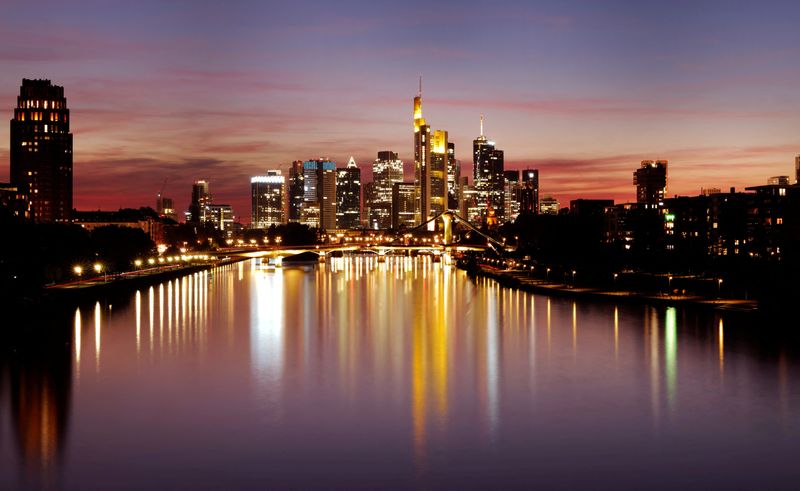By Miranda Murray and Paul Carrel
BERLIN (Reuters) -German investor sentiment suffered a record slide in March due to the war in Ukraine and economic sanctions on Russia, a survey showed on Tuesday, with collapsing expectations making a recession in Europe's largest economy "more and more likely".
The ZEW economic research institute said its economic sentiment index dropped to -39.3 points from 54.3 in February. The fall was the biggest since the survey began in December 1991. A Reuters poll had pointed to a reading of 10.0 for March.
"A recession is becoming more and more likely. The war in Ukraine and the sanctions against Russia are significantly dampening the economic outlook for Germany," ZEW President Achim Wambach said in a statement.
"The collapsing economic expectations are accompanied by an extreme rise in inflation expectations," he added.
An index for current conditions fell to -21.4 from -8.1. The consensus forecast was for a reading of -22.5.
Germany's finance minister said on Monday the cabinet would approve a draft 2022 budget on Wednesday but that he would submit supplementary fiscal plans to parliament in the coming weeks to reflect the economic impact of the war in Ukraine.
In evidence of the fallout from the Ukraine crisis in corporate Germany, Volkswagen (DE:VOWG_p) CEO Herbert Diess said on Tuesday the full impact of the war was not yet clear and was throwing the carmaker's 2022 outlook into question.
German industrial production rose at the start of the year, but economists said it could slump due to the fallout from the war in Ukraine.
Alexander Krueger at Hauck Aufhaeuser Lampe, a private bank, said the ZEW result was "a disaster for the economic outlook."
"The ZEW index gives a bad foretaste of sentiment indicators still to come," he added. "The economy is teetering on the brink of recession."

The European Central Bank said last week it will stop pumping money into financial markets this summer, paving the way for an increase in interest rates as soaring inflation outweighs concerns about the fallout from Russia's invasion of Ukraine.
"The ECB's job is not getting any easier with the darkening economic outlook," said Ulrich Wortberg, economist at Heleba.